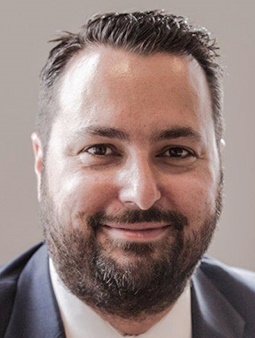 A quick interview with lawyer Albertos Polizogopoulos
A quick interview with lawyer Albertos Polizogopoulos
Can medical professionals who oppose abortion and assisted suicide be forced to help patients get them?
That’s one of the key questions to be examined by the Ontario Superior Court of Justice June 13-15, 2017 in a case called Christian Medical and Dental Society et al versus College of Physicians and Surgeons of Ontario. The EFC is supporting the Christian Medical and Dental Society of Canada, an EFC affiliate, in its application to restore freedom of conscience as part of a legal intervention shared with the Assembly of Catholic Bishops of Ontario and Christian Legal Fellowship.
→ Check for the latest updates on this case and peruse the legal argments on our CMDS-CPSO webpage
→ EFC Vice-President David Guretzki tackled the issue on 100 Huntley Street on June 13 (skip to minute 20)
→ Listen to a June 13 Lighthouse News podcast to hear an interview on the issue with EFC President Bruce Clemenger
Q1. What’s at stake in this case?
The right for all people to live their lives, and practise their professions, in a manner which is consistent with their religious and/or moral convictions. If the government and regulatory bodies are permitted to compel physicians to violate their religious and/or moral convictions, it opens the door for the government to prescribe the conduct of all professions and all individuals. If physicians can be compelled to act in violation of their moral and/or religious beliefs, then lawyers, pharmacists, nurses, teachers and many more may follow.
Q2. How is this case different from other religious freedom cases?
This case is different from most recent religious freedom cases, but similar to many of the earlier ones fought in Canada. The early days of religious freedom jurisprudence included a number of cases where certain segments of the population were prohibited from participating in certain professions or in the public square. We had law societies which required a religious oath, effectively barring Roman Catholics. We had universities which did not admit Jewish people. We had laws prohibiting Jehovah’s Witnesses from owning land. In the past century, our courts and eventually, the Charter of Rights and Freedoms, helped remove those barriers to practising one’s faith in Canada. As a result, many of the more recent religious freedom cases dealt with religious individuals or communities seeking the right to engage in certain activities or conducts. With this case, however, we’re seeing a throwback to the first half of the twentieth century where the government and regulatory bodies take steps to effectively bar or silence a particular religious community from participating in the practice of medicine.
Q3. What impact will this case have on the average Christian?
In the short term, it will determine whether their Christian physician is permitted to practise medicine in accordance with their Christian beliefs. This may or may not have a direct impact on the patient and his or her care. But this case is about much more than Christian physicians. Its implications are far-reaching and in the long term will either protect the rights of Christians to live and work according to their Christian faith or will result in the government and regulatory bodies being able to curtail religious freedom and compel people to act in a prescribed manner.
Albertos Polizogopoulos is a partner with the legal firm Vincent Dagenais Gibson. In this case he is counsel for the applicants (Christian Medical and Dental Society et al). This is the first in the new weekly Three Questions interview series on the EFC website.